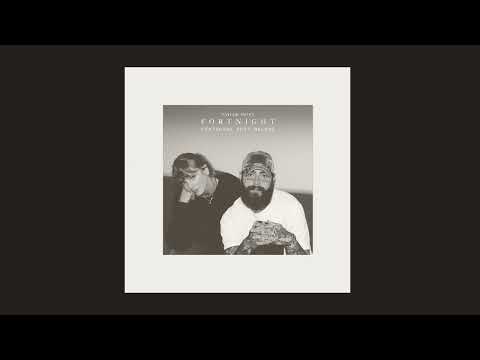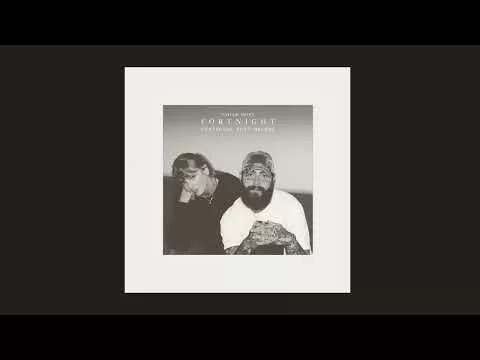Except when it doesn’t.
Toward the end of her juicy new album, “The Tortured Poets Department,” Swift unloads a sparky electro-pop song called “I Can Do It With a Broken Heart.” In the song she essentially admits that last summer, as she was crisscrossing the country on her record-breaking (and far from finished) Eras tour — a show centered on her constantly living her best life — the singer was actually falling apart inside.
“They said, ‘Babe, you gotta fake it till you make it,’ and I did,” she sings over a whooshing groove that feels like it’s slowly picking up speed, “Lights, camera — bitch, smile / Even when you wanna die.” These are the makings of a very sad song, but “I Can Do It With a Broken Heart” isn’t sad at all; it’s crisp, propulsive, almost ecstatic. The point isn’t that she suffered through this experience — it’s that she soldiered through it. “I’m so depressed I act like it’s my birthday every day,” she crows in her perkiest voice, explaining why in the next line: “I’m so obsessed with him but he avoids me like a plague.”
Swift’s 11th studio LP, released at midnight Eastern time, follows a busy period in the 34-year-old’s personal and professional spheres: Beyond launching the Eras tour, which itself followed 2022’s hugely successful “Midnights” album, Swift — deep breath here — broke up with Joe Alwyn, the English actor with whom she was in a romantic relationship for more than half a decade; had a reported dalliance with Matty Healy of the 1975 that ended amid an uproar over offensive comments he made about Ice Spice; notched insane commercial numbers with re-recordings of two of her older albums; took the Eras production into movie theaters; and, oh, yeah, started dating Travis Kelce of the Kansas City Chiefs before his team won Super Bowl LVIII in February.
Its sound pitched somewhere between the synth-soaked “Midnights” and 2020’s rootsy “Folklore,” “Tortured Poets” touches on all this, not least the split with Alwyn, whom she portrays in songs like “So Long, London” as a cold and disinterested partner. “I stopped trying to make him laugh / Stopped trying to drill the safe,” she sings. She also details the link-up with Kelce, whose NFL victory she evokes in “The Alchemy”: “Trying to be the greatest in the league / Where’s the trophy? / He just comes running over to me.”
Yet this isn’t the breakup album — or the new-love album — you might’ve expected. Swift doesn’t portray herself precisely as a victim as she did in old tunes such as “Dear John” or “All Too Well,” to name two of her masterpieces about unscrupulous men; nor is there anything dewy-eyed about “The Alchemy,” which likens falling for a new guy to a chemical imbalance. The LP turns out to be something of a heel turn; it’s got a proudly villainous energy as Swift embraces her messiest and most chaotic tendencies. This mind-set comes to light particularly in a handful of songs that appear to be about Healy, the edgelord rock star whom she alternately roasts as a selfish junkie in “The Smallest Man Who Ever Lived” and describes as the only guy crazy enough to match her in the title track.
“But Daddy I Love Him” is the album’s finest cut: a garment-rending folk-rock melodrama in which Swift seems to excoriate her audience for its disapproval of her and Healy’s affair. “I’d rather burn my whole life down than listen to one more second of all this bitching and moaning,” she sings, going on to compare her pearl-clutching fans to “judgmental creeps” and “vipers dressed in empaths’ clothing.” In a time of stan culture run amok, it’s thrilling to hear a superstar address her followers this way — and wild to imagine the response among those she’s relied on to fork over untold sums for concert tickets and collectible vinyl editions of her records.
In its cheerful bad vibes, “Tortured Poets” registers as a clean break from the therapized self-care pop heard lately from the likes of Ariana Grande and Kacey Musgraves. Swift isn’t seeking betterment in these songs about emotional trauma and its aftermath; if anything, she’s taking a perverse satisfaction in her unwillingness to learn someone else’s lessons. (In a funny twist, the A-list pop star she’s most closely aligned with right now is her frenemy Olivia Rodrigo, whose “Guts” maps a similar emotional terrain.)
We’ve encountered this Taylor before: More than anything she’s done since, “Tortured Poets” feels like the spiritual successor to 2017’s “Reputation,” which took a devious glee in dealing with the fallout of her feuds with various famous people. Indeed, many fans thought she intended to announce her “Taylor’s Version” remake of “Reputation” at February’s Grammy Awards, where she won album of the year for a record fourth time with “Midnights”; wearing black and white à la “Reputation’s” cover, she instead revealed that she’d made “Tortured Poets,” whose artwork shares a color palette with the earlier LP.
As on “Reputation,” Swift delights in depicting herself as the bad guy, as in “Who’s Afraid of Little Old Me?,” where she insists, “I was gentle till the circus life made me mean.” And that happy participation in pop’s celebrity death match is a crucial distinction from recent work by Billie Eilish and Lorde, who seem perpetually on the lookout for an escape from the highly scrutinized lives they’ve created. “I cry a lot, but I am so productive,” Swift sings in “I Can Do It With a Broken Heart,” which ends with a flex — “Try and come for my job” — as chilling as it is hilarious.
All this lore — it’s a lot. Yet “The Tortured Poets Department” also showcases Swift’s gifts as a songwriter, musician and producer. Her melodies are sticky and her arrangements grabby; working in the studio with Jack Antonoff and Aaron Dessner, she’s honed an electro-acoustic style that’s instantly identifiable (even if that’s sometimes because she recycles a melodic figure she’s used before). Post Malone’s scratchy croon adds a welcome wrinkle to the album’s opener, “Fortnight,” while Florence Welch of Florence + the Machine ups the theater-kid intensity of “Florida!!!”

As a singer, Swift explores the sultrier lower depths of her range in “Fresh Out the Slammer” and the Fleetwood Mac-ish “Guilty as Sin?”; as a lyricist, she leans into detail in a way she didn’t quite on “Midnights,” fondly recalling a conversation with maybe-Healy in the title track where the two of them “declared Charlie Puth should be a bigger artist” (!) and perfectly capturing the mid-30s position in “Florida!!!” with a line about how “my friends all smell like weed or little babies.”
“Tortured Poets” closes with the slow-and-low “Clara Bow,” titled after the early-cinema It girl, in which Swift thinks through the all ways that show business has been chewing up — or trying to chew up — beautiful young women for the last 100 years. It starts with Bow, then moves up to Stevie Nicks before landing on someone who looks in this light like … Taylor Swift, which is truly a name you haven’t heard pronounced until Taylor Swift herself says it.
“You’ve got edge she never did,” the song’s narrator tells the woman — one more provocation on an album full of them.
